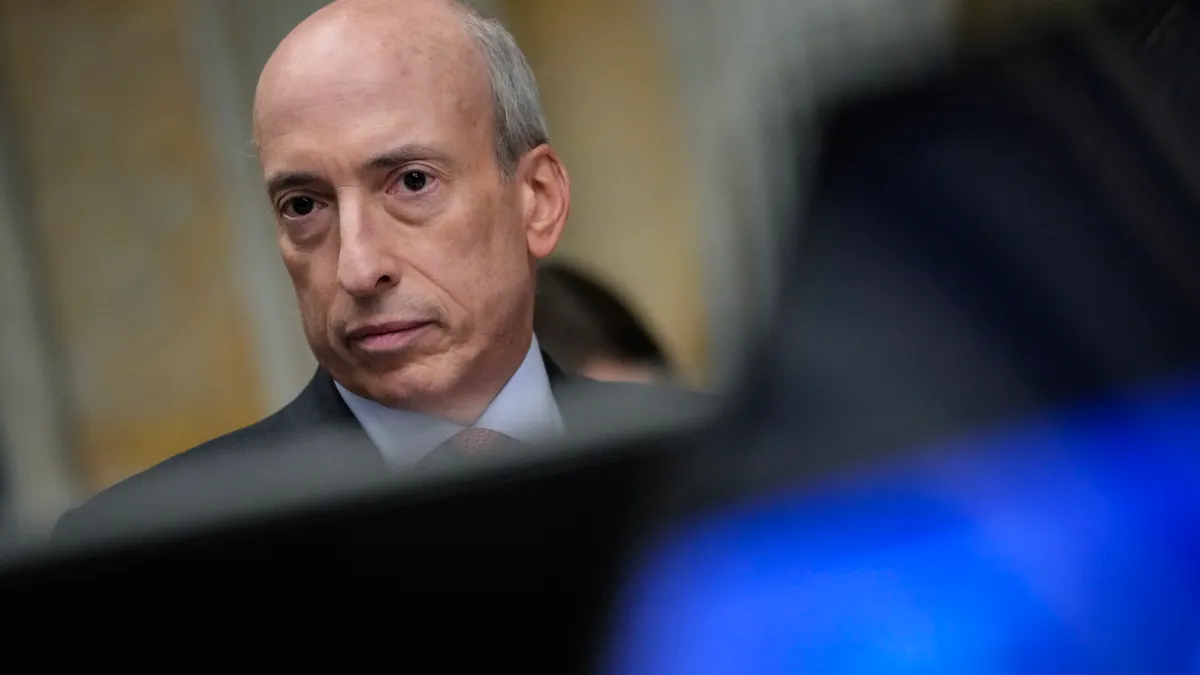Dive Brief:
- The Securities and Exchange Commission approved a 2025 budget of $399.7 million for the Public Company Accounting Oversight Board, as well as a related accounting support fee of $374.9 million, the regulator announced in a Wednesday press release.
- The budget approval for the watchdog — responsible for “auditing the auditors” and overseen by the SEC — comes as both agencies prepare for changes to come under the incoming presidential administration of President-elect Donald Trump. Last month current SEC Chairman Gary Gensler announced he would step down from his role on Jan. 20, with Trump nominating crypto lobbyist and former SEC commissioner Paul Atkins to fill the seat.
- Gensler stressed the importance of the PCAOB’s role, noting financial markets are “built on trust,” according to a statement included in the Wednesday release. “This trust, though, can easily be taken for granted. The PCAOB — an important reform of the George W. Bush Administration — writes the standards for auditors and audits the auditors. That’s the core of what it does, and it’s every bit as important now and into the future,” he said in the statement.
Dive Insight:
The SEC’s approval comes after the PCAOB’s board greenlighted the budget plan in late November. It represents a 4% increase from its 2024 $385 million budget, according to materials from both agencies.
The plan as approved represents a slowing of growth for the audit watchdog; though funds are earmarked for “core investments in people, processes, and technology,” the budget comes without a planned increase in headcount for the PCAOB in 2025, according to the statement by Chair Gensler also published Wednesday.
Gensler’s support of the approved budget is due to “the important role the PCAOB plays in protecting investors and facilitating capital formation,” he said in the statement. The outgoing SEC chair pointed to the need for trust in financial markets and the crucial role the PCAOB plays in that space as an audit watchdog, noting “Investors needed facts and figures they could trust — figures without the liars.”
Other leaders at the agency were not so convinced: also in a Wednesday statement, SEC commissioner Hester Peirce noted that while the increase in the PCAOB’s budget year-over-year is modest, it represents a 40% jump from 2020.
“At this rate, the budget five years from now will be $560 million,” Peirce said in the statement. “The increase is striking, but even more important is whether the PCAOB is having a net positive effect on audit quality. Are the dollars the PCAOB is spending working? The PCAOB paints a picture that does not look a lot better than pre-PCAOB days.”
The division among SEC leadership mirrors the ongoing tug-of-war regarding the PCAOB’s reach and efficiency, which has largely fallen along party lines. The audit watchdog faces an uncertain future in the incoming Trump administration, which is widely expected to take a looser approach to regulation across the board than the current administration under President Joseph Biden.
Created by the Sarbanes-Oxley Act of 2002 in response to the Enron collapse, dissolving the watchdog would take an act of Congress, but the PCAOB could be effectively defanged by Republican leadership should they simply choose not to pursue enforcement, accounting experts previously told CFO Dive.
That fate may be likely should Trump’s pick for SEC chair be confirmed, Robert Pawlewicz, assistant professor of accounting at the Robins School of Business for the University of Richmond in Richmond, Virginia told CFO Dive in a previous interview.
Atkins is expected to have a lighter hand at the agency till than Gensler — the latter has been heavily criticized by Republican leaders over strict enforcement policies throughout his tenure as SEC chair, especially in regards to a proposed rule mandating companies disclose the impact of climate change.
The SEC did not immediately respond to requests for comment.















